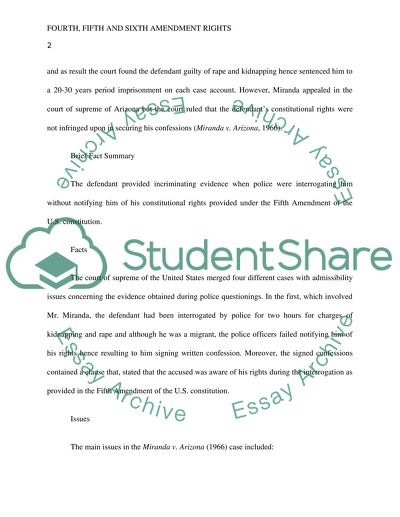Cite this document
(“Fourth, Fifth and Sixth Amendment Rights Essay Example | Topics and Well Written Essays - 2000 words”, n.d.)
Retrieved de https://studentshare.org/law/1663004-fourth-fifth-and-sixth-amendment-rights
Retrieved de https://studentshare.org/law/1663004-fourth-fifth-and-sixth-amendment-rights
(Fourth, Fifth and Sixth Amendment Rights Essay Example | Topics and Well Written Essays - 2000 Words)
https://studentshare.org/law/1663004-fourth-fifth-and-sixth-amendment-rights.
https://studentshare.org/law/1663004-fourth-fifth-and-sixth-amendment-rights.
“Fourth, Fifth and Sixth Amendment Rights Essay Example | Topics and Well Written Essays - 2000 Words”, n.d. https://studentshare.org/law/1663004-fourth-fifth-and-sixth-amendment-rights.


